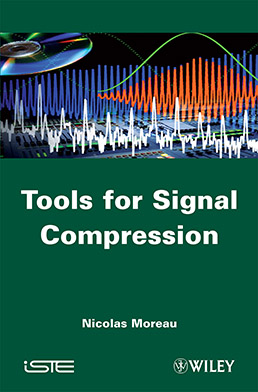
In everyday life, we often come into contact with compressed signals: when using mobile telephones, MP3 players, digital cameras, or DVD players we are using devices that capture, send, and manipulate digital, compressed versions of much larger and more complex – often analog – amounts of data that represent the original sound, image, or video. Compression is the process by which the huge amounts of information or data from the real world are reduced, using techniques like sampling, transformation, quantization, and various algorithms, to standard file exchange formats such as JPEG, MP3, MPEG, and H.261. Compression can be either lossless – where the original source information can be exactly and completely reconstructed from the compressed version – or lossy, where some data and hence quality is lost, but results in smaller compressed files which can be processed or transmitted much more quickly.
This book examines this extremely important field of technology and application, and presents the tools and algorithms required to compress and uncompress source signals such as speech and music that are central to the modern world of telecommunications, Internet access, streaming media, and converging mobile applications. It is organized into three parts; the first part, which is theoretical in nature, examines the standard tools used in compression systems: including scalar and vector quantization, predictive quantization, transform quantization, entropy coding. In particular it discusses the levels of consistency that exist between these different tools. The second part of the book is more concrete in nature and explains how these tools are used in the latest speech and audio coders. Finally, part three provides examples of Matlab programs simulating these coders.
Part 1. Tools for Signal Compression
1. Scalar Quantization.
2. Vector Quantization.
3. Sub-band Transform Coding.
4. Entropy Coding.
Part 2. Audio Signal Applications
5. Introduction to Audio Signals.
6. Speech Coding.
7. Audio Coding.
8. Audio Coding: Additional Information.
9. Stereo Coding: A Synthetic Presentation.
Part 3. MATLAB Programs
10. A Speech Coder.
11. A Music Coder.
Nicolas Moreau worked with Télécom ParisTech for over 30 years, first as an Assistant Professor, and then as a Full Professor. His research interests include audio and multimedia signal processing with particular emphasis on audio coding and watermarking.